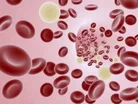New blood transplant procedures trialled in UK

Twenty two healthcare centres and hospitals across the UK are to trial new procedures and protocols for blood transfusions, BBC News is reporting.
It comes after armed forces from America and the UK have implemented new blood transfusion protocols in medical facilities in Iraq and found they have increased rates of patient survival.
The aim of the trials is to identify the optimal and most beneficial mix of the three main components of blood; red blood cells, platelets and plasma.
To read the latest edition of Healthcare Global, click here
- AstraZeneca thyroid cancer drug gets EU approval
- Antibiotic resistant superbugs spread across Europe
- Fertility treatments increase by almost six percent
If the trails produce positive results, one of the main changes in blood transfusion procedures would be the administration of plasma.
Up until now, in the UK at least, patients had to be blood tested to see if they needed additional plasma to help to stem the bleeding.
If needed, plasma usually has to be thawed and this process, coupled with the additional time it takes to carry out a blood test detracts from the time available to stem the bleeding.
As well as including plasma in more major blood transfusions, the armed forces medical service has also tried to limit the use of saline solution, which some believe can prevent the blood from clotting.
Although the clinical trials are working to determine the exact ratio of blood cells and plasma, initial research has suggested 2:1 plasma to cell ratio is the most effective.
BBC News quoted Professor Karim Brohi, who is leading two of clinical trials at the Barts and The London Trauma Centre, as saying the ratio is “as good as if not better" than the current 1:1 proportion.
He also told the BBC: “Around the world, 2.5 million people bleed to death each year. That's more than die from HIV and Malaria and a lot of those deaths are preventable.
“We're trying to work out what are the underlying problems that go along with that, so that we can treat patients better so they survive and return to full health.”
Our magazine is now available on the iPad. Click here to download it.
- AI healthcare roundup: Eisai & TytoCare new SolutionsTechnology & AI
- Phesi: Ukraine war will impact global clinical developmentMedical Devices & Pharma
- Breast cancer was the most studied disease in 2021 - PhesiTeleHealth & COVID-19
- Healthcare firms form Truveta to reduce health inequitiesTechnology & AI



